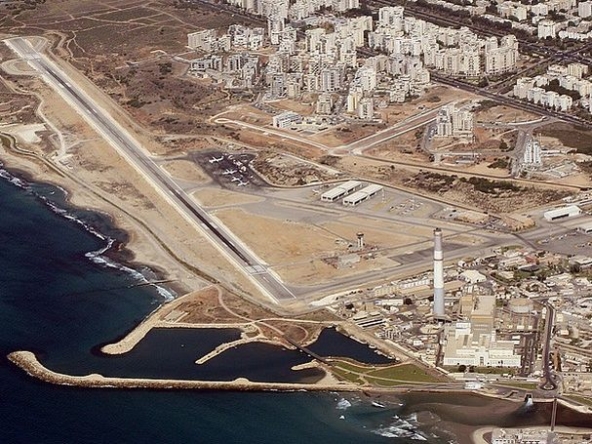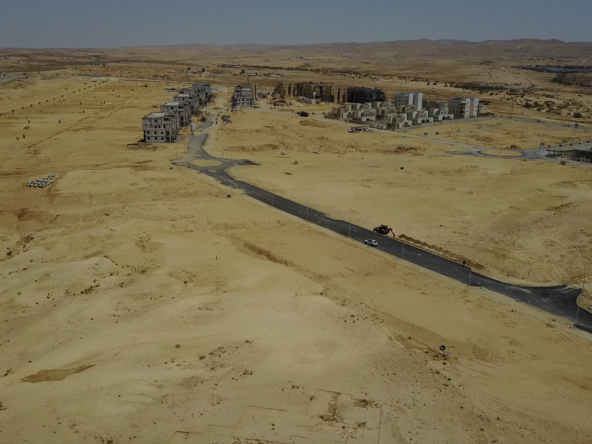[ssba-buttons]
The race to purchase the best agricultural land in Israel. Young couples and some investors who can no longer afford or are unwilling to invest in the major cities of Israel have shifted their investments towards these agricultural lands Before Permits.
Many individuals and investors note the enthusiasm surrounding the acquisition of agricultural land. One of the main reasons for the significant rise in apartment prices in recent years. At the same time, several specialized companies in Israel have identified an opportunity in the speculation of agricultural lands. These lands have the potential to become, ONE DAY, buildable in the short to medium term. These companies assist interested investors in this complex project that can become very lucrative.
Some have succeeded in their financial operations. By obtaining building permits for their agricultural land 5 to 10 years after their purchases, they were able to multiply their investments by 10 to 50 times. But some have found themselves with agricultural lands whose permits have been delayed. However, their value continues to increase despite an unchanged status. On average, agricultural lands progress by 2 to 3% per year.
What should be considered when purchasing agricultural land?
1. Pay attention to the type of land purchased – whether it is currently designated for thawing (Afshara in Hebrew) or not.
There are two main types of lands:
- one is land designated for thawing. This can be identified in municipal plans for urban development. This land will be the first to obtain a building permit in the so-called area.
- Another type of land for which new plans are needed to thaw.
2. The price of the land itself informs us about the type/status of the land: Market prices, like for any other activity, should be studied, and the higher the average price of a piece of land based on its geography and status, the more likely it seems to be ‘thawed’ quickly.
The case of ISRALAND:
ISRALAND: Studies the prices of each region of the country, calls on independent and state-certified land experts. The goal is to obtain additional information for the market study for each interesting piece of land to be studied and proposed to our clients. This meticulous work of verifying urban plans, validating various commissions at the municipal and regional levels, and studies by experts provides us with numerous insights that allow us to classify and rate the lands.
3. The overall plans should examine whether there are factors that could prevent thawing. These factors may include, for example: The proximity of agricultural land to a military base. The route of a road, the course of a waterway, a nature reserve, or various plants. Most buyers do not know that planning committees require a safety space between certain factories and certain uses and residential areas, for example.
Better perspective, private property, and some legal notions to consider:
4. To obtain the best perspective on the land, it is recommended to access and examine it closely with your own eyes. There are many cases where it is possible to identify factors that may prevent the approval of construction on the land. If you notice, for example, a national park or a polluting factory near the land, this should be taken into account. And of course, these are factors that expertise highlights and allows us not to select this land.
5. It is recommended to check whether the agricultural land is private property or belongs to the Israeli Land Authority (Minhal), as this has economic implications. When it comes to state-owned lands: There may be clauses in the lease contract with the Israel Land Administration that stipulate that with the change of designation, the land will revert to state ownership. In some cases, the administration will allow the tenant to benefit from the zoning change in exchange for full market value rent payments after the land status has changed. In other words, even if the land becomes buildable, the tenant will not be the beneficiary of the improvement, but rather the state.
This is why Israland only selects Private lands, allowing for all guarantees on the value acquired in the long term upon status change.
Buy alone or in co-ownership!
6. When individuals or investors purchase agricultural lands, it often involves the purchase of a plot by multiple buyers. They then enter into a cooperation agreement, which can have several implications. First, the acquisition is of a relative and not specific area of the lot. In other words, it does not specify exactly where the promised part is to the buyer. The buyer will know the location of their piece of land as soon as the parceling has taken place.
Israland’s advice: It is necessary to know how many partners are involved and to identify them. Particularly to avoid confrontations and entanglements during planning and construction.
It is not necessary to purchase your agricultural land solely in Shlemout (complete plot). That is to say, being the sole owner. Unlike the concept of Mousha (co-ownership). That is to say, being a co-owner and involved in the decisions of it. Some projects and lands will need to be well selected to be solely in Shlemout, but in some cases during an expansion of a city, it may be interesting to purchase agricultural land in Mousha and unite to obtain the best deals from the developers designated by the cities.
Israland once again studies its client’s project and checks with an independent land expert and its legal team the potential value when purchasing in Mousha.
In Conclusion:
7. This type of investment is particular, a bet on the development of cities. The work on perfect timing both at purchase and sale to maximize these gains in a short time. It is therefore highly discouraged to take out a loan to invest in this kind of placement.
The purchase of agricultural lands before Permits is a new activity that originated in Anglo-Saxon countries and is developing significantly in Israel. Mainly due to the difficulty of purchasing real estate.
The average price of agricultural lands purchased for investment in 2011 reached 281 thousand shekels, compared to 234 thousand shekels in 2010 for 500 m2. The number of transactions in 2016 on agricultural lands amounted to over 3500 operations for the year.



